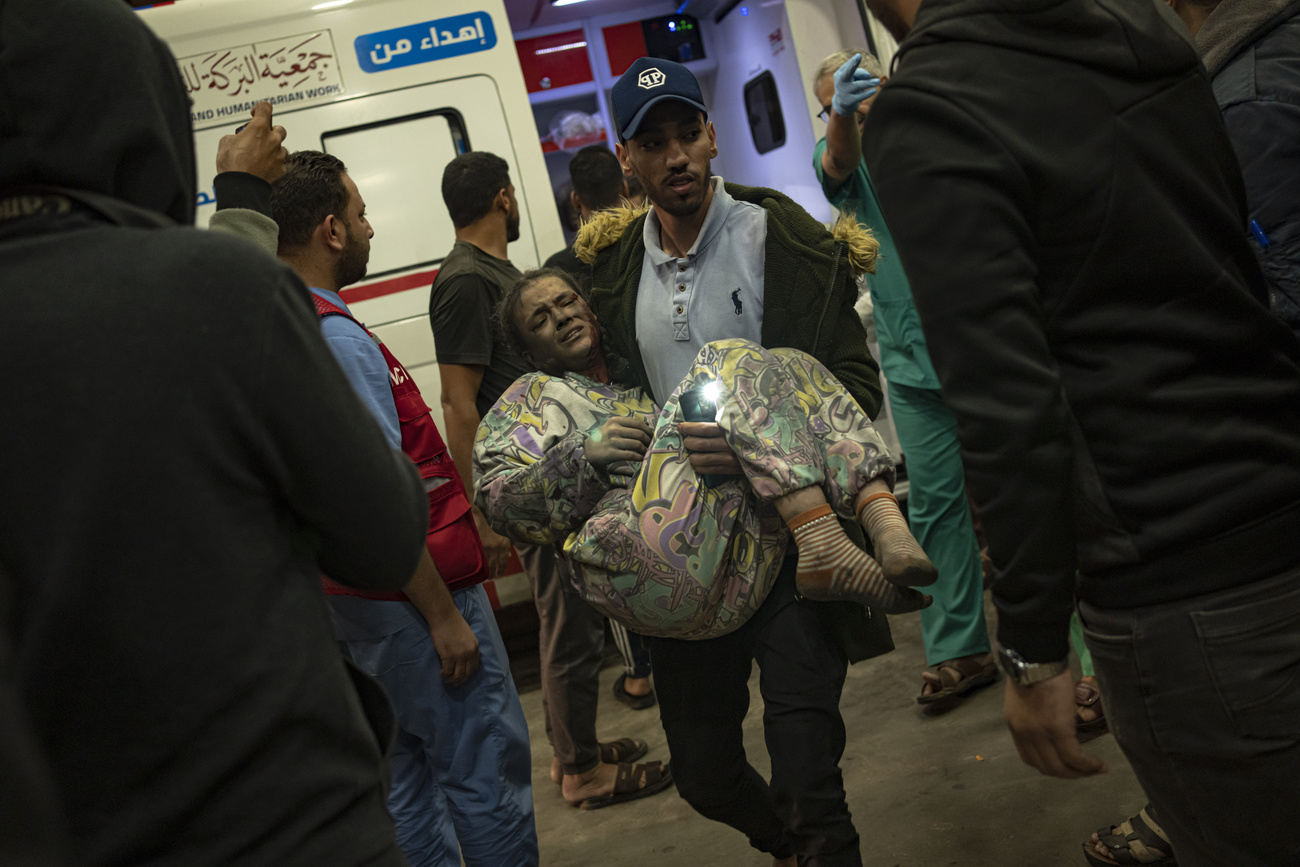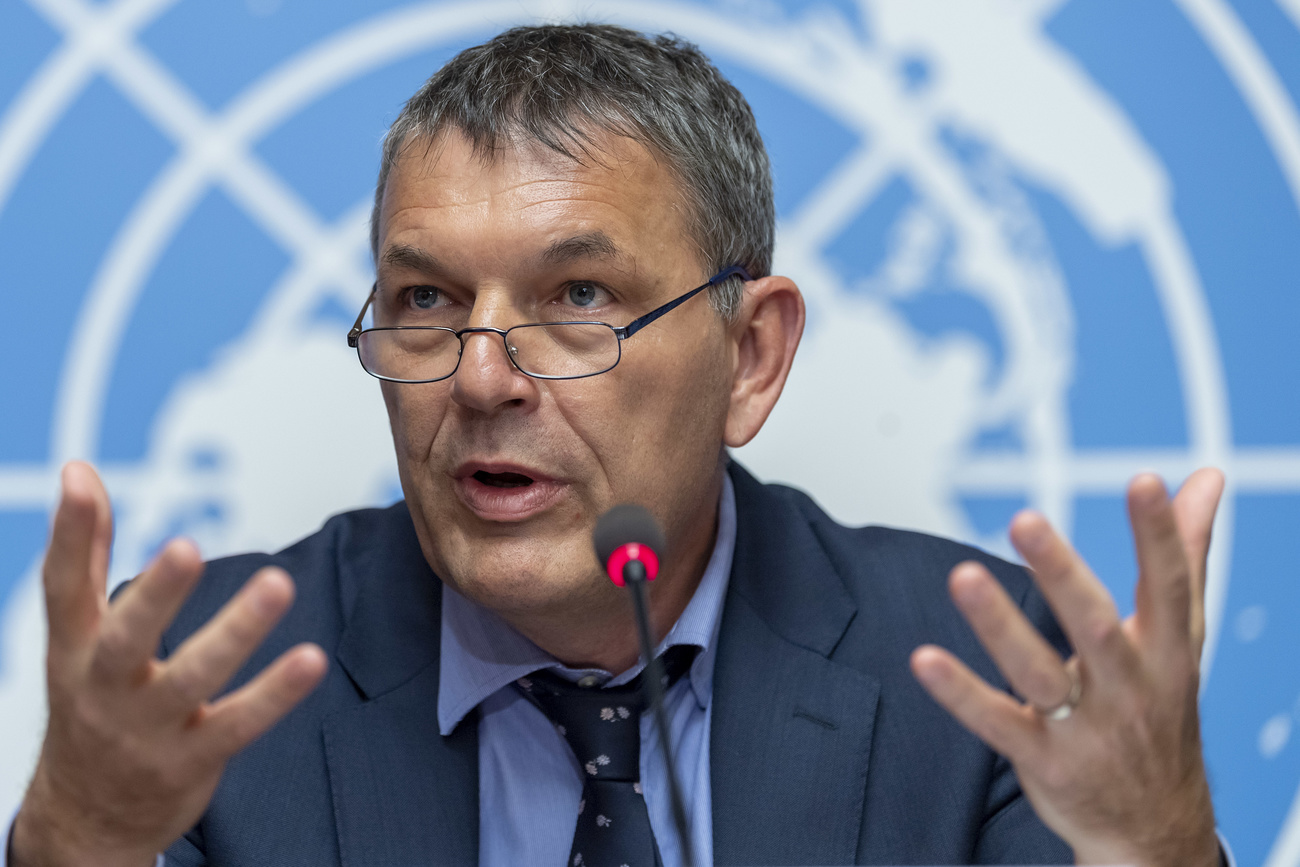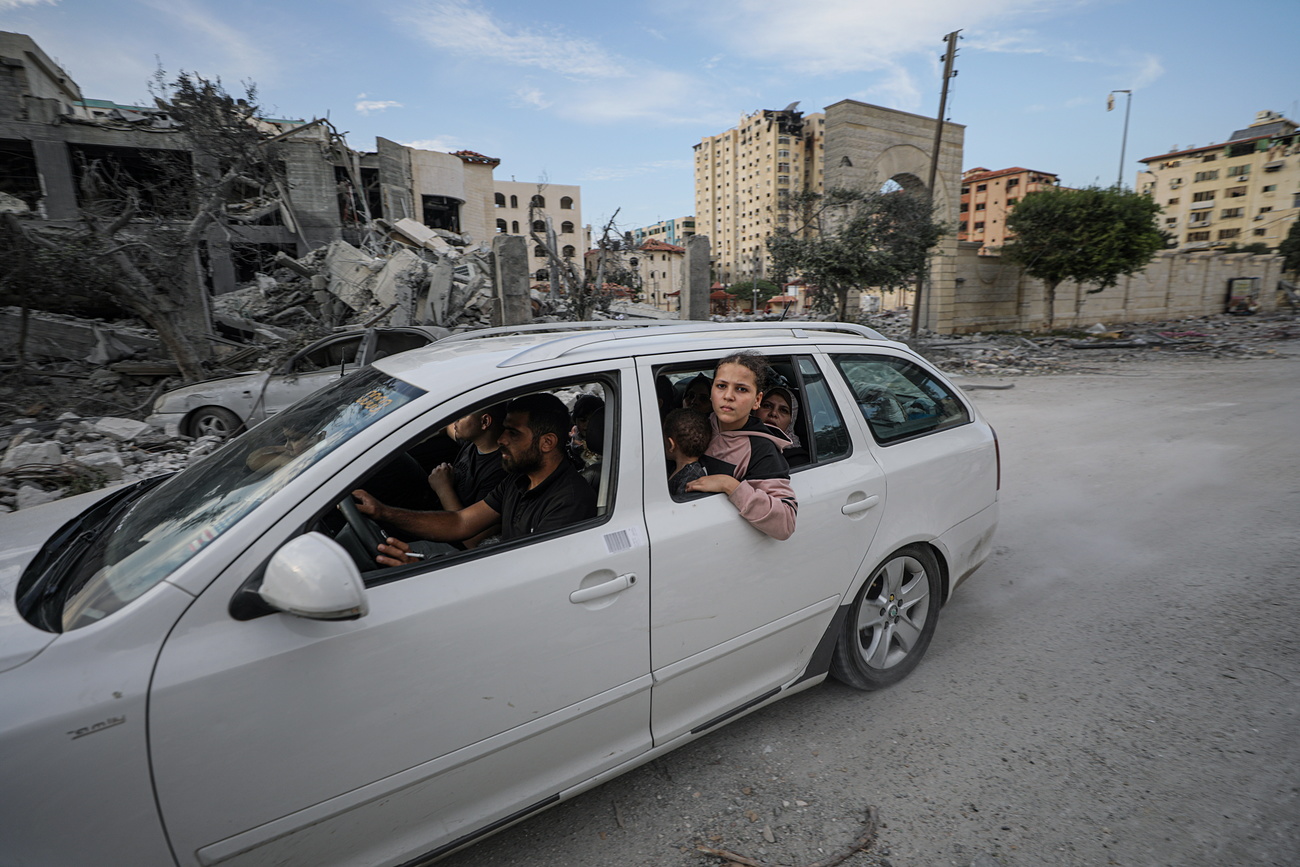Aid agencies despair as fuel runs out in Gaza

Aid agencies are desperately calling for a humanitarian ceasefire as Gaza’s health system threatens to shut down due to a lack of fuel.
“We’re running out of adjectives to describe the humanitarian situation in Gaza. It’s catastrophic,” says John Entwistle of the International Federation of Red Cross and Red Crescent Societies (IFRC), speaking from the headquarters of the Palestinian Red Crescent Society (PRCS) in Ramallah, West Bank. “Gaza is a desperate place to start with, lack of opportunity, lack of resources, lack of movement. Now the conflict has just compounded that exponentially. And on top of that, you have shortages of humanitarian aid.”
Entwistle and his colleagues who he says are “working around the clock” during a “very busy and stressful time” coordinate PRCS aid operations in the West Bank and in Gaza. With a staff of close to 4,000 and some 13,000 volunteers, PRCS is one of the main humanitarian actors active in the occupied Palestinian territories, where it runs 15 hospitals.
“They [PRCS staff in Ramallah] know everyone very well in Gaza. They know the ambulance crews, staff and volunteers, directors of hospitals. And of course, they had friends in Gaza as well,” says Entwistle. “So there is a need to do the work, to do it well. But there’s a real human side to it too that is obviously weighing on everybody’s mind.”
Lack of fuel
Food, water, medicines, and fuel – among other essentials – are in short supply in Gaza. So much so that the UN agency for Palestinian refugees (UNRWA) announced on Monday that it expected aid operations at the Rafah crossing between Egypt and Gaza to stop. “The humanitarian operation in Gaza will grind to a halt in the next 48 hours as no fuel is allowed to enter Gaza,” Thomas White, director of UNRWA affairs in Gaza, posted on XExternal link, formerly known as Twitter. No fuel has entered the Gaza Strip since October 7, he added.
The organisation said it had exhausted its fuel reserves and could no longer operate the trucks and machinery needed to transport supplies from the border and unload them in Gaza. As a result, the distribution of supplies to shelters and clinics had largely stopped on Tuesday.
UNRWA also announced that two of its main water distribution contractors ceased operations on Monday after running out of fuel, leaving 200,000 people without drinking water. Telecommunication companies are expected to shut down on Thursday.
The Israeli authorities allowed a limited amount of fuel to enter Gaza on Wednesday to run aid trucks, but the UN says this is “a fraction of the fuel” needed for humanitarian operations.
Humanitarian ceasefire
For weeks, UN officials – from secretary general Antonio Guterres to heads of aid agencies such as the World Food Programme (WFP), the United Nations International Children’s Emergency Fund (UNICEF), and the World Health Organization (WHO) – have called for a humanitarian ceasefire to prevent more civilian deaths and to allow for the delivery of aid in Gaza.
“There needs to be a sustained and safe humanitarian access. And for us, the fighting needs to stop now, so that there is an opportunity for humanitarian assistance to get in,” says Entwistle. “The number of trucks coming into Gaza is simply insufficient.” Following the Hamas attacks on Israel on October 7, the Israeli army’s response and its intense bombardment of Gaza have damaged the territory’s infrastructure. Roads have been destroyed or blocked by collapsed buildings. “It takes a lot of time to get anything done,” he points out.
Before the war, about 500 trucks a day entered the Gaza Strip. On Tuesday, 91 trucks carrying humanitarian aid crossed from Egypt into Gaza. Since October 21, when the Rafah crossing was reopened, 1096 trucks – on average less than 46 a day – have entered the Strip, according to the UN.
Last Friday, a spokesperson for the Office for the Coordination of Humanitarian Affairs (OCHA) told journalists in Geneva that the UN was not able to bring aid to the north of Gaza, which Israeli forces surround. Over 1.5 million people out of a population of 2.2 million have been displaced across the Gaza Strip, with many people fleeing from the north to the south, but hundreds of thousands remain in the north, according to the UN.
Health system on the brink of collapse
“It’s really important that aid is able to get to the north,” says Entwistle. “There’s still thousands of people at Al-Quds hospital, including patients, and they can’t be moved. So the staff and volunteers of PRCS are staying there to look after them.” Al-Quds hospital, the second largest in Gaza, ceased operations on Sunday due to a fuel shortage and is closed to new patients. Patients with chronic illnesses, who need to go on dialysis, have diabetes, cancer or a heart disease have been unable to get treatment.
The Israeli military has called for the evacuation of hospitals in the north of Gaza. According to WHO, this would be a “death sentence” for patients, as hospitals in the south cannot admit more patients. On Tuesday, a WHO spokesperson reaffirmed to Geneva-based journalists that patients could not be moved safely: “With such a large number of people, all of whom require critical support to stay alive, that would be a very difficult thing to ask in the best circumstances.”
The UN has warned that hostilities near hospitals in Gaza had intensified in recent days and expressed concerns on Wednesday about reports of Israeli military raids inside Al-Shifa hospital, Gaza’s largest. Israel said the military had launched the raid because it suspects that Hamas has a command centre under the hospital and uses connected tunnels to hold hostages. It refutes accusations its army is targeting civilians. As of Tuesday, 22 of 36 hospitals in Gaza were not functioning due to lack of fuel, damage, attacks, and insecurity, according to WHO.
With fuel running low, medical staff have had to work in difficult conditions. “The team showed me a picture that is just unbelievable. The surgical team at Al-Quds hospital were conducting an operation by telephone light. Can you imagine trying to do surgery with three or four colleagues with their phones over providing light, with a lack of medical equipment, drugs, and supplies? It’s just atrocious,” says Entwistle.
Since the beginning of the war, 102 UNRWA staff members have been killed and at least 27 wounded, according to the UN agency. This is the highest number of aid workers killed in such a short period of time in the UN’s history.
At a humanitarian aid conference in Paris on Thursday, several countries – including France – and aid agencies have expressed their support for humanitarian pauses, which could eventually lead to a ceasefire. But to this day, the Israeli government has rejected the notion of a ceasefire. They argue their priority is to eliminate Hamas and release their hostages.
“The talking around it [humanitarian ceasefire] needs to stop and some action needs to happen, and it needs to happen now because it will only result in more people being hurt and dying if those resources don’t get through. […] And what you’re seeing now too are other impacts: outbreak of diarrheal diseases, respiratory infections and that will only get worse as water and sanitation and hygiene continues to spiral downwards,” says Entwistle.
Edited by Virginie Mangin

In compliance with the JTI standards
More: SWI swissinfo.ch certified by the Journalism Trust Initiative














You can find an overview of ongoing debates with our journalists here . Please join us!
If you want to start a conversation about a topic raised in this article or want to report factual errors, email us at english@swissinfo.ch.